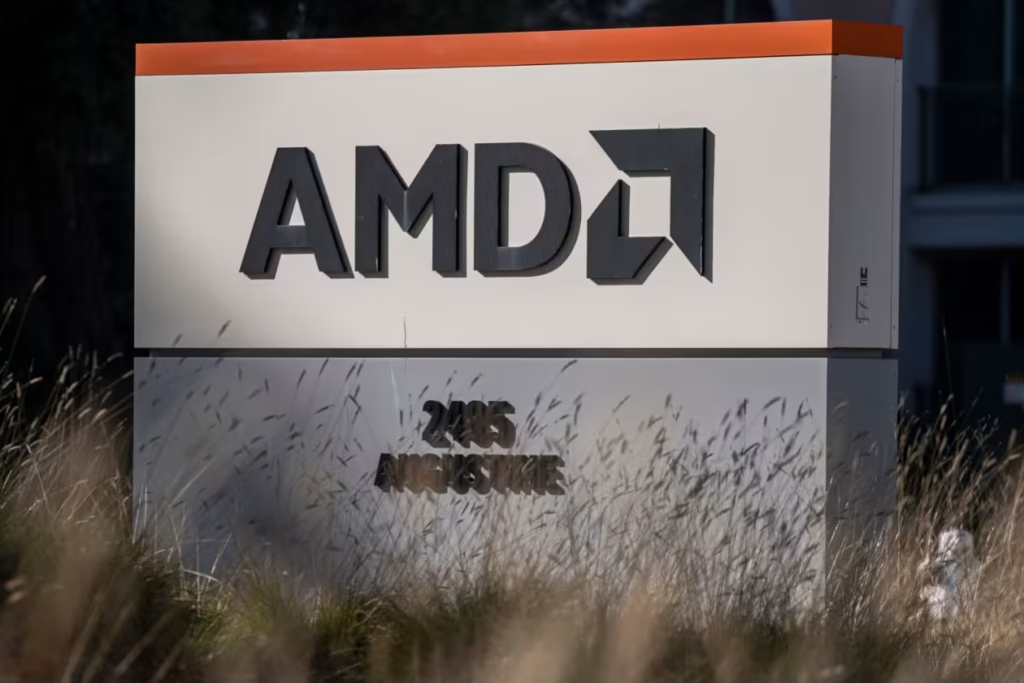Seaport analysts cut MD’s shares on Thursday.
This year, Advanced Micro Devices Inc.’s stock has surged on hope for the company’s AI-chip roadmap, which some believe would help it overtake Nvidia Corp.
However, Seaport Research analysts are concerned that AMD (AMD) would struggle to live up to expectations, which could limit future stock growth. Over the last three months, AMD’s stock has increased by almost 37%, outperforming Nvidia’s stock’s (21%), gain over that time.
According to a note released on Thursday by Seaport analysts led by Jay Goldberg, who cited discussions with supply-chain participants, the chip maker’s AI accelerator business appears to be slowing down. There are also “signs that AMD is struggling to grow orders from the many customers it announced at its AI event this summer,” they stated.
AMD announced plans for the upcoming MI400 and MI450 series of AI accelerators in June, along with the launch of the Instinct MI350 series. According to the company, the MI350 will be used by its current clients, such as Oracle Corp. (ORCL) and Meta Platforms Inc. (META).
The MI350 series, according to Bernstein analysts at the time, was projected to “finally close the (raw) GPU performance gap to Nvidia’s Blackwell offering, albeit about a year late.” According to analysts, the next MI450 series “should be closer to Rubin than AMD’s prior efforts assuming they can deliver.” The series is slated to compete with Nvidia’s next-generation Vera Rubin AI platform.
However, Seaport stated on Thursday that although AMD’s AI accelerators have demonstrated performance gains, the market for them “remains challenging with highly demanding customers.”
“In particular, we are concerned that many of their headline customers have only purchased evaluation systems that are unlikely to convert into volume orders for at least one generation of the MI systems,” the analysts stated.
As Microsoft Corp. (MSFT) and Meta reassess their AI spending plans, the Seaport analysts expressed concern about AMD’s progress with these clients as well as its increasing “use of discounts and other support mechanisms.” They said that if AMD loses its negotiating power with its high-bandwidth-memory suppliers, its margins may be under additional pressure.
AMD is still viewed by analysts as “a viable long-term competitor” for AI accelerators, but it might be a while before it gains a more significant market share.
Seaport’s rating for AMD’s shares changed from buy to neutral.
See more: As the rivalry between AMD and Nvidia takes on a new level, AMD’s stock is soaring.
Seaport’s downgrade follows a week after analysts at Truist Securities raised AMD’s stock to buy, citing industry contacts’ comments that hyperscalers are increasingly using AMD’s CPUs for AI data center deployment.
Following AMD’s August earnings announcement, in which CEO Lisa Su predicted that the business will see tens of billions of dollars in AI sales, other analysts were similarly optimistic. According to Su, AMD was “bullish” on both the company’s AI prospects and its MI355 AI accelerators, which are a part of the MI350 family.





